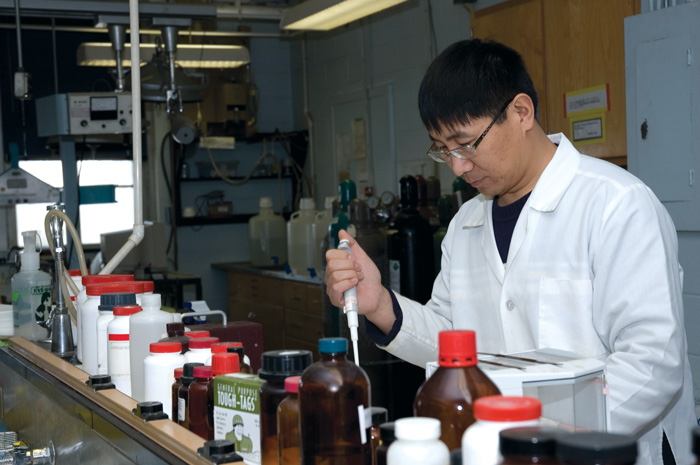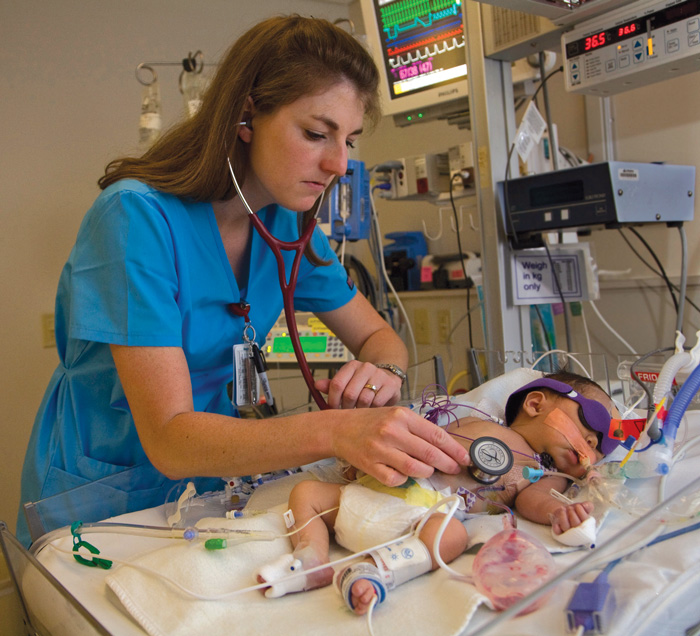 Adult Cardio Care
Adult Cardio Care
Program: Cardiovascular Physiology and Cardiology (Medicine)
Situation: Cardiovascular disease and stroke kill more Americans than any other disease, and the impact is far greater when one considers those disabled, requiring long-term care, and institutionalized. The costs of acute care are enormous, and prolonged care for those surviving incidents is even more daunting. Tennesseans have among the highest incidents of cardiovascular disease and stroke in the country.
Mission: To reduce the morbidity and mortality from cardiovascular disease through outstanding cardiovascular research, patient care and educational programs.
Position: Division of Cardiovascular Physiology, Department of Physiology – Cardiovascular research has been a strength of UTHSC for decades and is one of two major focuses of the Department of Physiology. Our faculty members are international leaders in this area. The UTHSC Department of Physiology (Chair, Gabor Tigyi, MD, PhD) ranks fourth nationally in extramural funding in its discipline. Particular focus areas include cerebrovascular physiology and stroke, perinatal cerebral circulation, vascular smooth muscle cellular/molecular biology, ion channels and cell signaling.
Division of Cardiovascular Diseases, Department of Medicine – Particular focus areas include heart failure research, vascular and cardiothoracic surgery, interventional cardiology, heart rhythm disorders and our cardiology training program.
For cardiovascular specialists in both physiology and medicine, a key goal is to increase collaborations between basic scientists and clinical faculty with the intent of speeding the translation of basic cardiovascular research into new methods of treatment and prevention.
Leaders: Since 2007 – Charles W. Leffler, PhD, professor and director, Cardiovascular Renal Center, Department of Physiology; Since 2008 – Guy Reed, MD, Diggs Alumni Professor and chair of the Department of Medicine
Founded: Physiology – 1928; Cardiology (Medicine) – 1968
Current Researchers: Cardiovascular Physiology – 14; Department of Medicine, Division of Cardiovascular Diseases – 16
Core Strength: In addition to further developing a premier cardiovascular research effort, we envision establishment of a multidisciplinary, internationally recognized Cardiovascular Institute to provide outstanding training for the next generation of scientists, physicians and teachers who will make new discoveries that provide novel avenues for prevention, treatment and cutting-edge clinical care to Tennesseans.
Integration of our efforts will open new avenues for extramurally supported research and will provide unique opportunities for interdisciplinary training for medical students, graduate students, allied health students, residents and fellows. It will also provide a platform for collaboration with biotech start-up and other commercial interests that seek to transform research discoveries into new medical products.
 Neonatology & Maternal-Fetal
Neonatology & Maternal-Fetal
Programs: Neonatology and Maternal-Fetal Medicine
Position: The Sheldon B. Korones Newborn Center is the oldest NICU (Neonatal Intensive Care Unit) in the area and one of the first few in the country, established in 1968.
The Division of Maternal Fetal Medicine (MFM) and the Maternal Fetal Institute were established in 2008 to augment the long-standing health care efforts of the Obstetrics and Gynecology (OB/GYN) Department.
Leaders: Since 2005 – Ramasubbareddy Dhanireddy, MD, chief of the Division of Neonatology Since 2008 – Giancarlo Mari, MD, chief of MFM and director of the Maternal Fetal Institute; since August 2009 – chair of OB/GYN
Vision: Neonatology – To improve comprehensive delivery of care to high-risk newborns in this region, and to develop public health initiatives with county and state government agencies to reduce infant mortality in Memphis and surrounding areas. MFM – To expand its capability to positively impact maternal and fetal health both regionally and statewide.
Current Teams: Neonatology – Has 10 full-time faculty members and one part-time, with a fully accredited fellowship program and five fellows. Patient care is also supported by several neonatal nurse practitioners and neonatal nurses. Pediatric, med-peds and family practice residents also rotate through the Newborn Center to gain clinical experience.
MFM – Has seven full-time faculty members, with a fully accredited fellowship program and one fellow. An additional fellow joined the team in summer 2010. Patient care is also supported by a number of perinatal sonographers, nurses, nurse practitioners, and genetic counselors.
 Core Strength: Neonatology – In the 1960s, Dr. Korones took up the challenge to establish a Level 3 NICU in Memphis to fight the extremely high infant mortality rate. Currently the UTHSC faculty manages two Level 3 NICUs in the city, one at the Regional Medical Center at Memphis (The MED) and the other at Le Bonheur Children’s Hospital. Together these Newborn Centers have a total 98-bed capacity. Over the past 40 years, these units have served more than 45,000 newborns.
Core Strength: Neonatology – In the 1960s, Dr. Korones took up the challenge to establish a Level 3 NICU in Memphis to fight the extremely high infant mortality rate. Currently the UTHSC faculty manages two Level 3 NICUs in the city, one at the Regional Medical Center at Memphis (The MED) and the other at Le Bonheur Children’s Hospital. Together these Newborn Centers have a total 98-bed capacity. Over the past 40 years, these units have served more than 45,000 newborns.
MFM – The Fetal Therapy Center at Le Bonheur Children’s Hospital is a state-of-the-art interdisciplinary program providing integrated care by a team that includes MFM specialists, neonatologists, pediatric radiologists, pediatric cardiologists, and pediatric surgeons, among others. The MFM team recently expanded its services to provide exceptional subspecialty care to women in the region. The Center for High Risk Pregnancies at Baptist Hospital for Women is an outreach program that draws from the surrounding cities and states.
Looking to the FUTURE: “Over the next few years, we plan to recruit additional faculty members to develop new research programs and obtain more extramural funding for research. We also plan to maintain an active fellowship program and possibly expand it.
“The new NICU at Le Bonheur Children’s Hospital is being built with 60 new beds and will help to improve comprehensive delivery of care to high risk newborns in this region.” – Dr. Dhanireddy [Editor’s note: Le Bonheur built a new $340 million hospital adjacent to its current facility near the UTHSC campus in Memphis. The new hospital held its grand opening on June 15 and will begin serving patients in December.]
MFM – “The MFM Division plans to continue its expansion in patient care, education and research through the hiring of several faculty members, training of additional fellows, and by securing funding to support existing and future studies that will hopefully lead to better patient outcomes in the entire state of Tennessee.” – Dr. Mari
